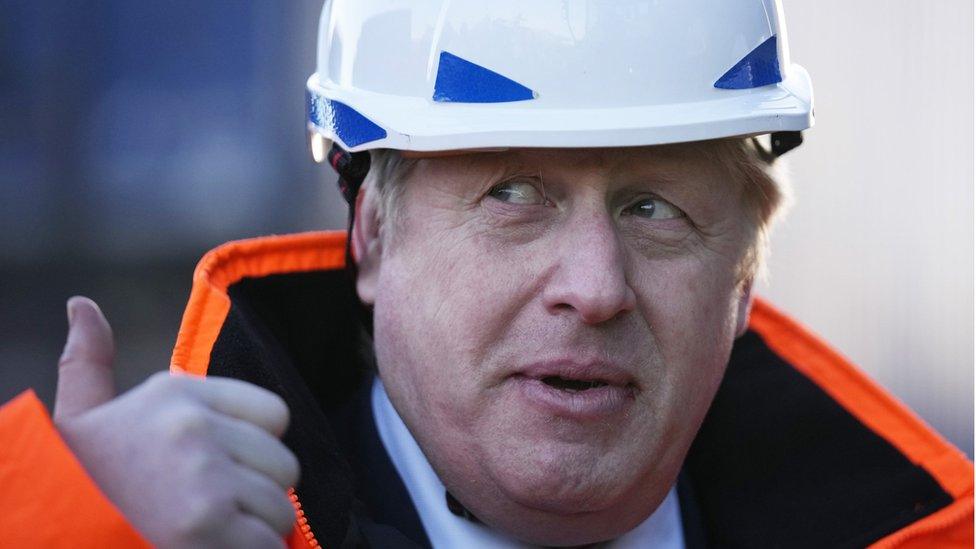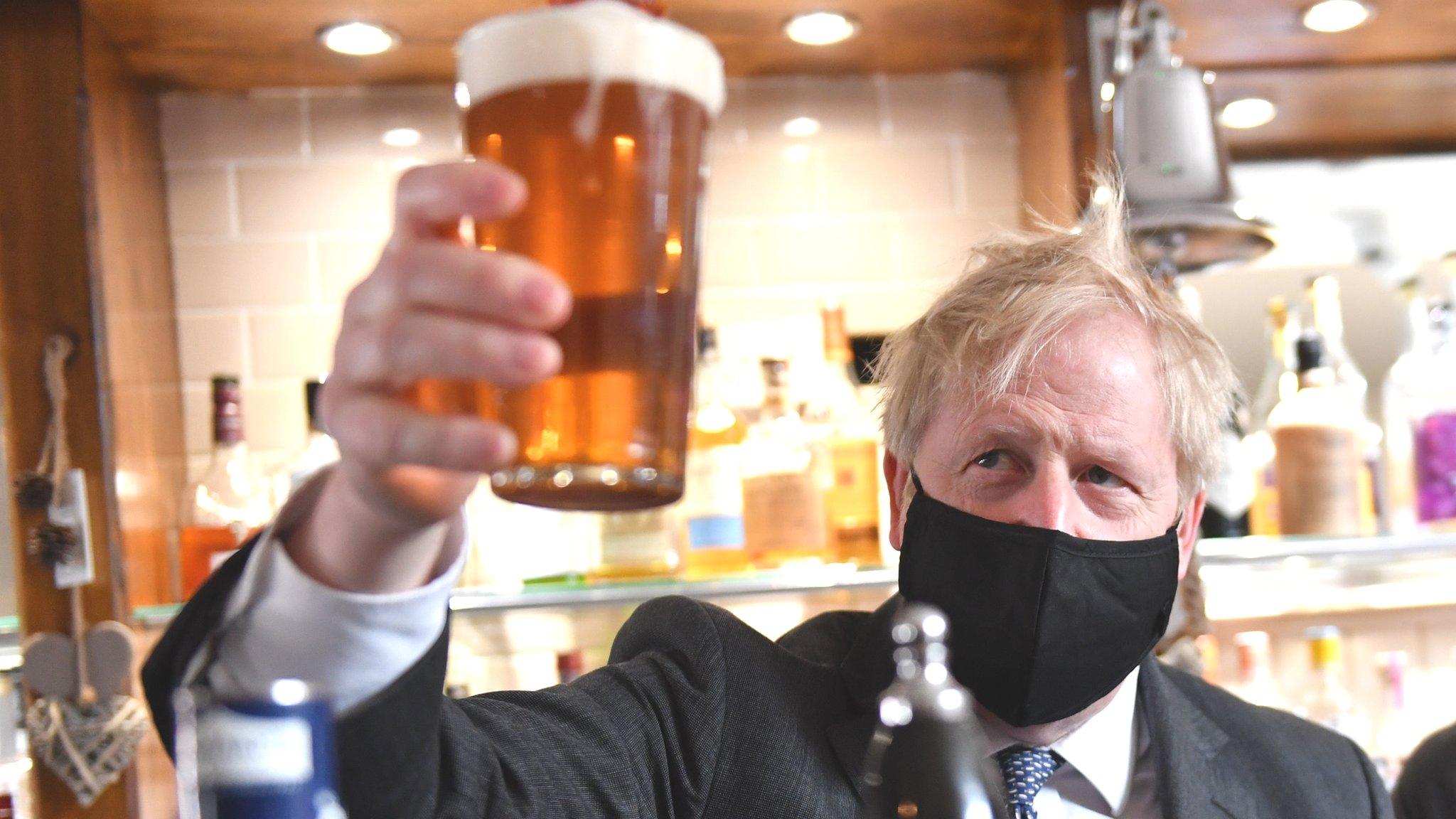Brexit: EU laws overhaul will boost growth, vows Boris Johnson
- Published
- comments

Boris Johnson has vowed that a plan to overhaul EU laws copied over after Brexit will encourage business to invest in the UK.
The prime minister said a "Brexit Freedoms Bill" will make it easier to change thousands of EU-era regulations that remain in force.
He said the it would allow the UK to set growth-friendly rules for "cutting edge technologies of the future".
But the plan has been criticised by the devolved administrations.
Since Brexit the UK has moved away from EU laws in certain areas, including on immigration, payments to farmers, and gene-editing rules for crops.
But the prime minister has been under increasing pressure in recent months from MPs on the right of his party to go further.
Former Brexit minister Lord Frost resigned last year, calling for the government to deliver on the opportunities Brexit presented, adding in his letter to the PM: "You know my concerns about the current direction of travel."
In an announcement for the two-year anniversary of the UK's exit from the EU, No 10 said its new bill would ensure changes can be made more easily.
Speaking on Monday, Mr Johnson said it would allow the UK to shape better regulations in areas where it is "strong" - citing areas like cyber technology, artificial intelligence, and gene editing.
"There are things that we can do differently in a way that will encourage business to invest even more," he told reporters.
"We won't diverge for the sake of it, but we're going to make sure this is the number one place to invest and do business because of freedoms that we have," he added.
Downing Street said the changes would build on others since Brexit, which include:
a move to simplify alcohol duties from 2023 by moving way from EU-wide rules
scrapping the EU-mandated 5% rate of VAT on tampons
creating a new UK regime for regulating government support to industry
The UK copied over the laws to smooth its exit from the EU on 31 January 2020, and kept them during a transition period that ended in January 2021.
Since September, the government has been reviewing which of these it wants to keep in place, ditch or amend.
Under Brexit withdrawal legislation passed in 2018, retained EU laws have a legal status of their own - and a special process for changing them.
Downing Street said it wanted to make it easier for MPs to change these laws, arguing that removing or changing them could otherwise take years.
It did not specify the provisions in the bill or how it calculated a claim that businesses would save £1bn through the cutting of red tape.


Legislation inherited after Brexit - "retained EU law" in the jargon - can only be changed if Parliament passes new laws.
But the "Brexit Freedoms Bill" will change that, by giving ministers more power to alter retained EU law more quickly, and not necessarily with votes in Parliament.
It's very unlikely that the fussy clerks in the House of Commons will allow the government to give the bill such a political name, and so I bet it gets relabelled as something much more boring.
Whatever it's called, to Conservative backbenchers it promises a bout of post-Brexit deregulation.
But the same MPs will also worry that it's a power-grab by ministers at their expense.
It's part of a policy blitz this week that's visible from space.
There's going to be a new compensation scheme for airline passengers whose flights are delayed. Also due is the paper fleshing out the PM's flagship policy of "levelling up".
But all of this could be made to look like a sideshow by two things the government has no control over: Sue Gray's report into lockdown-busting parties in Whitehall that could drop at any time, and the diplomatic crisis between Ukraine and Russia.

However, the bill has sparked concerns in the devolved administrations - which have obtained new powers in certain policy areas since Brexit.
A source said that a meeting between the Attorney General Suella Braverman and devolved ministers on Saturday was "last-minute, fractious, and cack-handed".
The Scottish government's Cabinet Secretary for the Constitution Angus Robertson said the bill would "undermine devolution".
And Mick Antoniw, the Welsh Minister for the Constitution, said the UK government was driving a "coach and horses through the concept of mutual consent".
The situation in Northern Ireland is more complicated because of its special Brexit deal, known as the Protocol, which the UK is currently trying to renegotiate.
It keeps Northern Ireland inside the EU's single market for goods, meaning that a significant amount of EU law continues to apply. For example, there are question marks over whether the changes to alcohol taxes will be allowed.
The UK government said it would "continue to work closely with the devolved administrations".
Meanwhile, Labour criticised ministers for not using Brexit to scrap VAT on energy bills, which had to be at least 5% in the EU.
Shadow attorney general Emily Thornberry said the public "overwhelmingly support" the change, adding: "It is time the government started listening".
Brexit: How did we get here?
Related topics
- Published5 January 2022

- Published2 February 2024
